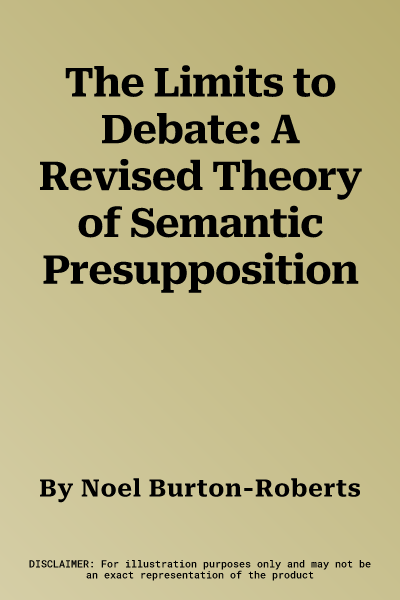Noel Burton-Roberts
(Author)The Limits to Debate: A Revised Theory of Semantic PresuppositionHardcover, 28 April 1989

Temporarily out of stock
Free Delivery
Cash on Delivery
15 Days
Free Returns
Secure Checkout

Part of Series
Cambridge Studies in Linguistics
Part of Series
Cambridge Opera Handbooks
Part of Series
Cambridge Studies in Linguistics (Hardcover)
Print Length
288 pages
Language
English
Publisher
Cambridge University Press
Date Published
28 Apr 1989
ISBN-10
0521361508
ISBN-13
9780521361507
Description
Product Details
Author:
Book Format:
Hardcover
Date Published:
28 April 1989
ISBN-10:
0521361508
ISBN-13:
9780521361507
Language:
English
Location:
Cambridge
Pages:
288
Publisher: